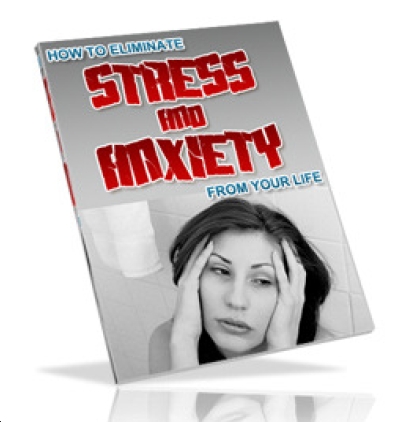|
What is stress and how can Hypnotherapy help to reduce and manage it?
Stress can be defined as a state we experience when there is a mismatch between perceived demands and our perceived ability to cope. Stress can also be defined as an adaptive response by a body to change in the environment. Stress response evolved to enable humans to deal with life-threatening dangers or stressors such as being confronted with a wild animal or perhaps a hostile human. Situations like this required action – the activation of stress response to wither stay and fight or to run away. Today we hopefully won’t have to face the same dangers as our ancestors but the stress response to demanding situations we face is still with us and our mind and body still prepare for fight or flight when confronted with this equivalent of the wild animal.
This is where the problem may begin as activation of the fight or flight response with no physical outlet, such as if we are stuck in a traffic jam and can’t fight it or flee it, or maybe an unfair confrontation in the workplace where once again the response for action may be triggered but we cant vent it by fighting or running away without consequences we would rather avoid. Perhaps both of these events and more are experienced on the same day, perhaps every day, and the stress builds within us until it can damage our health if a solution is not found Stress isn’t always bad – the stress response was designed to help and protect us and some people even place themselves in stressful situations they know they can handle for excitement and ‘the rush’ as it is often called. We all experience stress, and deal with stress management, in different ways depending upon our personality type, conditioning and possible training also. When we face a stressor but perceive we have the ability to deal with it successfully a feeling of success and achievement can be gained. Getting the balance right between good stress to motivate us and encourage us to grow, and our ability to cope with the stress is possibly the key to remaining healthy, positive and active in whatever arena of life we find ourselves. Our ability to cope with stress can be affected by our diet and the intake of good substances that out body needs to remain strong and flexible and to repair itself when needed. Also we should avoid anything that could cause us to be more stressed or weaker such as drugs, alcohol, smoking etc. Finally, stress can be external, some event or situation that is causing stress, or internal, attitudes or emotions that lead to stress (anxiety, guilt, low self esteem, fear, etc).
What is the Fight/Flight Response? Why do we still have it? The ‘Fight or Flight Response’ is a physiological reaction and is the body’s response to a stressor. Changes in hormones prepare a person to either stay and deal with a stressor or to take flight/run away. This immediate state of alarm is when the body prepares to take action, and in this state a person will be extremely alert to their surroundings but also very anxious and possibly unable to concentrate. The body will slow down systems not vital in responding to the stressor, such as the digestive system, which is why a person in a fight or flight situation may have a dry mouth and a nervous/upset stomach. The body will make other preparations such as improved cooling for the body as more energy is used and this will result in perspiration. The fight or flight response is a very old and very basic response and has been with us for a very long time. It was originally a response to danger that would prepare our ancestors to fight the wild beast or the enemy who might suddenly threaten or confront them, or to take flight and literally run away from the danger. This response is triggered when we send a message of alarm to a part of the brain called the hypothalamus. This area of the brain will then send a signal to the glands to release adrenaline, cortisol and endorphin into the blood stream.
Increased levels of adrenaline increase heart rate and blood flow which in turn brings extra oxygen and glucose to the muscles. Cortisol causes an increase in amino-acids and sugars in the blood. Amino-acids are crucial for the repair and recovery of damaged tissues which may occur under stress and the blood sugar adds to the availability of glucose (fuel) for the body. The release of endorphin, which is a morphine like substance only more powerful, provides the body’s natural tranquilizing system. Pain is blocked and a feeling of euphoria may be experienced, both helping to get the body through the situation it may find itself in due to stress. We still have this response, as it is still necessary to prepare and protect us in times of alarm, such as being involved in an emergency situation of any kind, or being confronted with any form of potentially life threatening danger. Once the initial stages of this fight or flight response are over, a person will have a psychological reaction to the stressor which will be based upon many variables including, personality type, conditioning, age, physical and mental ability, and their knowledge relevant to the situation to be dealt with. It is very often the resulting symptoms of this fight or flight response kicking in that we tend to call a panic attack. what actually happens is that we may be in a situation where we can’t fight or flight, such as a meeting or on a train, and so we become more and more anxious and may feel as though we will pass out, or be sick, or any one of a number of responses. What often happens then,is we find we have a desperate need to urinate, and that is another way the subconscious mind will sometimes attempt to gain our attention and force us to leave the arena in which we find ourselves at the time. It is normally the feeling of not being able to escape, and knowing that we might have this strong feeling to fight or flight that causes much of the anxiety and expectation of problems for most people who find they need help to overcome their problem. Also, many people….no…that should be most people who suffer from panic attacks and anxiety will normally have the need for some Obsessive compulsive actions in their life…it can often be a type of coping, or controlling strategy used as a stress management tool. Why hypnotherapy is totally different from any other form of therapy? Hypnotherapy is different from any other form of therapy because of the way in which the therapy part happens while one is in hypnosis. Put another way, hypnotherapy is a very effective combination of hypnosis, a trance or altered state of mind and deep relaxation, and the chosen therapy, which might be for example; suggestion therapy, regression, ego states therapy, neuro-linguistic-programming or hypnoanalysis. Hypnosis allows an individual to enter a state of deep relaxation which in itself is a very useful therapy for combating stress. It also allows one to become calm and focused, as all parts of the mind work together and concentrate on solving the problem at hand, and therefore making the very best use of the chosen therapy as it is applied. Why it is so helpful in cases of stress, anxiety and panic attacks? Hypnosis is a state in which the conscious critical faculty is temporarily suspended or distracted and in which all parts of the mind work in harmony for the good of the whole being. When in hypnosis an individual can become very relaxed and at the same time very aware and ‘sharp’, mentally focused. For the computer literate, I would liken hypnosis to the ‘safe mode’ on a computer, where if a part of the system is acting up or malfunctioning, placing the system in safe mode allows for investigation and repair to be carried out safely while minimising the risk to the normal operating systems. In some sports it would be like a ‘time-out’, where all parts of the team come together briefly to review the current state of play, to identify where poor choices may have affected the outcomes and to choose a new strategy to move forward with. In the normal hurly burly of life we seldom have time to take a time out, or to go into safe mode to pull together our resources and to calmly take stock and plan our best way forward. Hypnotherapy therefore provides relaxation (and clients of good therapists learn self-hypnosis so they can find this deep relaxation for themselves) and is therefore useful at even this basic level, as a kind of first aid. The good therapist will help the client to find any repressed emotions, triggers and false instincts from the past that are a kind of out-of-date, erroneous, or maybe just no longer wanted or needed programming, that loops around once triggered to cause us much anxiety and feelings of panic, but we often don’t know why. Following this, the wonderful power of hypnotic suggestion, and Neuro-Linguistic programming techniques will be used to provide new and efficient programming to support moves forward into a much more positive life with a better outlook on everything.
Alan Crisp DHP, GQHP, MASC, MBIH, LNCP, GHR/GHSC Reg
Clinical Hypnotherapist Alan has been involved in training and people development for over 20 years and has a full time practice in Beckenham on the Kent and South East London Borders.
Alan Crisp Clinical Hypnotherapist
 to “Your Health Success” our monthly F’R’E’E’ Newsletter
Back to Top of stress management page
============================================================================
|


